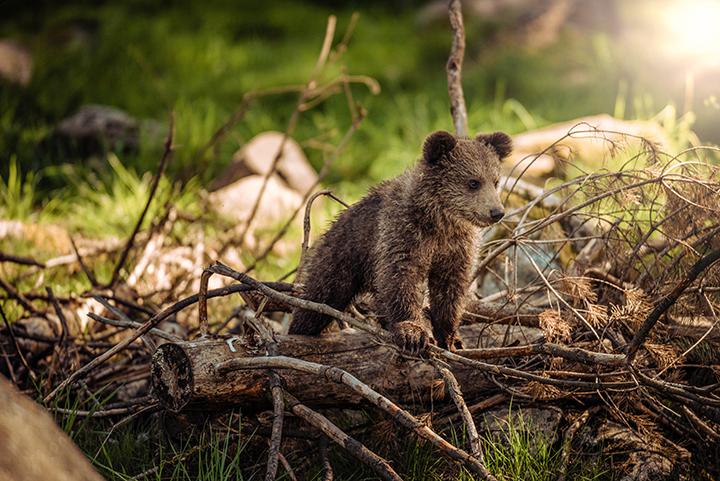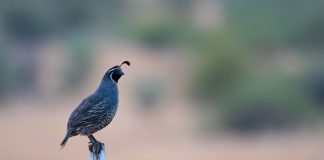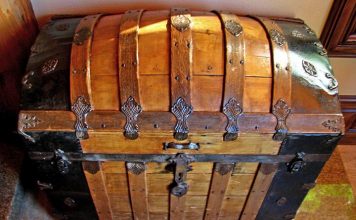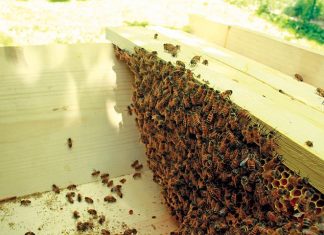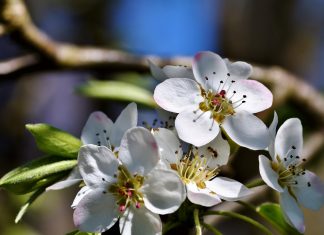 |
|
| Issue #86 • March/April, 2004 |
This spring and summer millions of wild animals and birds will be born. This is the new generation of wildlife, and their survival depends a great deal on their mothers, their environment, and your not interfering.
As the weather improves, children and adults are more apt to enjoy their outdoor surroundings, and there are bound to be increased contacts between people and young wildlife. People come across these “babies” ranging from birds chirping in the nest to a fawn lying hidden in a field. If you happen upon them, look, back away, and don’t touch.
In the natural plan, many animals leave their youngsters unattended for periods of time, and for a variety of reasons: to forage for food and water, to direct predators away and distract attention from their young, or to otherwise protect them. A mother’s sole concern is to raise her offsprings and teach them to survive.
Newborn animals have a natural camouflage, and a body that gives off very little scent, thus not attracting predators. When the mother leaves, she trusts this natural protection to safeguard her newborn.
The youngsters are purposely placed in a secluded area by their mothers to protect them from predators. Wild animals rarely abandon their young.
When someone thinks they’ve found an orphan, they should not pick it up, nor kidnap it. It’s probably under the watchful eye of the mother from nearby cover, too frightened to take on a two-legged intruder. And seldom are the young lost or misplaced. Their instincts are to stay in the place where their mother left them, and to merely await her return.
Frequently mothers are alerted to a human presence in the area, and leave their babies temporarily. In all probability she’ll resume charge as soon as the towering creature (you) leaves.
Just as outdoor enthusiasts are interested in camping, hiking, fishing, hunting, picnicking, and being left alone when they are communing with nature, so too, wildlife wants to be left alone.
It may tug at the heartstrings of well-meaning people, or create a feeling they are neglecting a responsibility to assist a needy and helpless orphan, but they’ll be doing an “abandoned” baby a lifetime favor by walking away. Although it’s instinctive to want to “help” forlorn creatures by picking them up, and even take them home where they will be “cared for,” the natural mothers can do a far better job.
To be sure, juvenile animals are cute and cuddly, but just touching, or picking up young wildlife may cause the mother to shy away from, or even reject them because of the human scent. Birds, however, don’t have a well developed sense of smell, and fledglings usually can be carefully and gently returned to their nests, with mom none the wiser.
Healthwise it could be dangerous to pick up or take home baby animals. They may be carrying rabies, distemper, lyme disease, or even a virus that could affect you and your household. Those loveable little foxes, baby raccoons, bear cubs, mountain lion kittens, skunks, squirrels, rabbits, opossums, chipmunks, and fawns also have parasites such as lice, fleas, and ticks. Many wildlife carry transmittable diseases not easily recognized by humans.
Wild young offspring might appear harmless, but can bite and scratch anyone attempting to handle them. Their natural instinct is to protect themselves if they are cornered or feel threatened, and they can exhibit unpredictable behavior when confronted by humans.
Removing a young animal or bird from its natural habitat is like issuing the creature a death sentence. Even people with the best of intentions don’t know what to feed them (their food is dramatically different from ours), and can cause them dietary problems, diarrhea, dehydration, and in some cases regressive development.
When humans become frustrated and then release captive animals or birds back into the wild, death usually occurs quickly. They will not have learned the skills needed to forage for food and to avoid predators. Their survival will be, at best, a struggle. Young wild animals are not like domestic kittens and puppies.
Sadly, the life span of “adopted” young is usually much shorter than if left to its family life in the wild. Many die from improper care and an incorrect diet. Others are killed in senseless accidents once they develop little or no fear of humans and their surroundings.
Cute babies eventually grow to adulthood, and some can become extremely dangerous when fully grown. Some “rescued” animals have to be destroyed when they mature, as they turn territorial, defensive, and aggressive. At times, and for no apparent reason, they attack humans, and “bite the hand that feeds them.” When mating season arrives, they frequently become agitated and mean-spirited. These types of wildlife are frequently declawed and/or defanged, rendering them completely defenseless if they were returned to nature.
Even those animals that survive and remain docile are of no value to the wildlife community because they are no longer “wild” and would not be able to cope even with their own kind.
In many states it is against the law to keep most wildlife as pets, and certain species are protected under federal law.
Youngsters should be cautioned to leave infant wildlife alone and told emphatically not to bring a baby home. It should be explained that the mothers routinely leave their young for a great many reasons. If they happen to “find” a young animal with no mother in sight, they should not “save” it. If you’re not certain about its status, you can always check on it the next day.
If you are absolutely certain you have discovered an orphaned animal (as when the mother is killed), report it immediately to your local wildlife office or conservation officer. Local game wardens and park rangers will arrange to have legitimate wildlife orphans picked up and cared for properly.
The best good deed humans can provide for young wild animals is to leave them alone. If one must take home something, let it be on film or in one’s memory of the wonders of nature.


